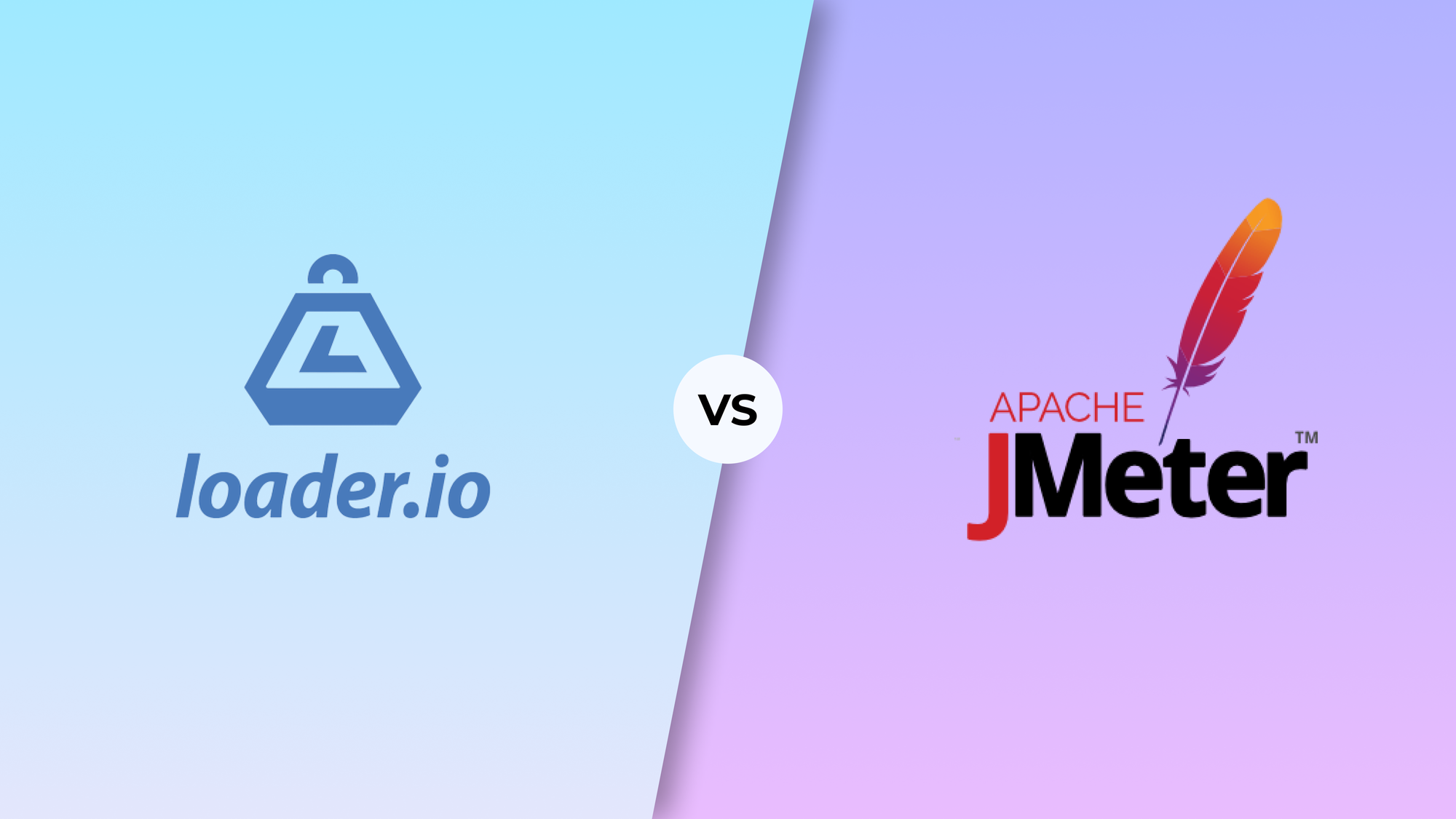Loader.io vs JMeter: Choosing the Best Load Testing Tool

In the fast-paced digital world, ensuring that your applications can handle heavy traffic is crucial. Two popular load-testing tools, Loader.io and JMeter, stand out in this arena. This blog will provide an in-depth Apache JMeter vs Loader comparison to help you decide which tool is right for your business needs. By examining their features, benefits, and use cases, we'll guide you through choosing the best load-testing solution for your projects.
Loader.io: Simplicity and Speed
Loader.io is a cloud-based load testing service designed for simplicity and speed. It's ideal for businesses looking for a straightforward, user-friendly solution to test their web applications under load.
Key Features
- Ease of Use: Loader.io offers an intuitive interface that makes it easy to set up and run tests.
- Cloud-Based: As a cloud service, it doesn't require any installation or configuration, saving valuable time and resources.
- Scalability: Loader.io can simulate thousands of concurrent connections, helping you understand how your application performs under heavy traffic.
- Real-Time Reporting: Get immediate insights into your application's performance with real-time analytics and reports.
Source : Loader.io
Benefits
- Quick Setup: Start testing within minutes, without needing extensive technical knowledge.
- Cost-Effective: Loader.io offers competitive pricing, making it accessible for small to medium-sized businesses.
- Integration: Easily integrates with CI/CD pipelines, enhancing your development workflow.
JMeter: Power and Flexibility
Apache JMeter is a robust, open-source load-testing tool known for its flexibility and powerful features. It is suitable for businesses that require comprehensive testing capabilities and have the technical expertise to leverage its full potential. JMeter is an excellent choice for performance testing, offering a wide range of capabilities.
Key Features
- Extensive Protocol Support: JMeter supports a wide range of protocols, including HTTP, HTTPS, FTP, and more, making it versatile for different testing scenarios.
- Customization: Highly customizable with plugins and scripting capabilities, allowing you to tailor tests to specific needs.
- Distributed Testing: Supports distributed load testing to simulate high loads by using multiple machines.
- Detailed Reporting: Provides detailed test results and analysis, helping you dive deep into performance metrics.
Benefits
- Open-Source: Free to use with a large community of users and contributors.
- Comprehensive Testing:Suitable for complex and large-scale testing requirements.
- Flexibility:Adaptable to various testing environments and needs, from simple to highly complex scenarios.
Comparison: Loader.io vs. JMeter
Which Tool Should You Choose?
Choose Loader.io if:
- You need a quick, easy-to-use tool for load testing.
- You prefer a cloud-based solution with minimal setup.
- You want real-time insights without delving into complex configurations.
Choose JMeter if:
- You require a powerful, flexible tool for comprehensive load testing.
- You have the technical expertise to customize and optimize your tests.
- You need an open-source solution with extensive community support.
Conclusion
Both Loader.io and JMeter offer unique strengths that cater to different business needs. By understanding your specific requirements and technical capabilities, you can choose the right tool to ensure your applications perform flawlessly under load.
Need expert help?
Need expert assistance with your software testing endeavours? F22 Labs offers comprehensive Software testing services tailored to your needs. Our team of experienced professionals excels in various testing methodologies, including load testing, performance testing, and more.
From test planning and execution to detailed analysis and reporting, F22 Labs is your trusted partner in delivering high-quality software solutions.
